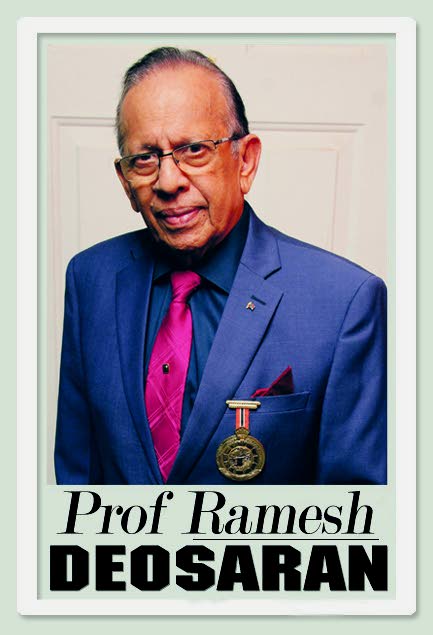When unfairness hurts more

Referring to the tax exemptions for top-line vehicles recently purchased by ministers Terrence Deyalsingh and Stuart Young, the Guardian wrote last week: “Two government ministers are coming under fire for their purchases of luxury vehicles as citizens continue to reel from the impact of extended lockdowns.”
And people reacted, complaining of unfairness and feelings of relative deprivation.
An Express Facebook poll revealed that 90 per cent said ministers should not get such "tax exemptions.” They don’t deserve it, it was claimed.
AG Faris Al-Rawi’s announcement of million-dollar payments to certain lawyers also raised feelings of relative deprivation not only across the country but more precisely within the legal profession itself.
Last month, the national uproar over the quiet arrival of “a small donation” of vials of the Pfizer covid19 vaccine from the US to the Ministry of National Security was caused by citizens’ feelings of unfairness. The question was rapidly asked: why was government allowing a special group, whoever they are, this “clandestine” privilege over others long in waiting? It seemed unfair.
Ministers publicly take an oath to serve “impartially without fear or favour, affection or ill-will.” When government loses moral authority, public mistrust grows, the body politic weakens and use of force increases.
Every day, there are stories of unfair treatment, with many reaching the courts and costing taxpayers’ money. Kirt Conrad Walrond’s commentary was headlined: They deserve better. He was referring to the undeserved suffering experienced by our seniors waiting for vaccination.
In a thoughtful letter to the press, teacher Lara Littlepage compared the conditions of students from well-to-do families with those students and families “who are struggling to make ends meet” during this covid19 season. The educational inequity from the covid19 divide will be seen more visibly in the next five to ten years.
The continued quarrels over the two Tobago bills rest most of all on feelings of unfairness, feelings that Tobago has been denied what it deserves. In his commentary, Jarrel De Matas wrote: “The fact remains that the LGBT community worldwide continues to be shamed, stigmatised, and discriminated against.” He feels they don’t deserve this unfairness.
The purpose of the East Port of Spain Community Recovery Committee arose from feelings of unfairness, on feelings of relative deprivation by the residents there.
Charging unequal treatment by WASA, president of the Greater San Fernando Area Chamber of Commerce Kiran Singh said, “WASA should be going after the big corporations” rather than have frightened poor people lining up to pay arrears.
The “privatisation” of gas stations has raised public fears over increased prices. Last week, Finance Minister Colm Imbert said he “will change the law to protect the public.” Why not change the law now? OWTU president Ancel Roget asks: “As a people, how much more we are prepared to take until people get up from their slumber and respond to the injustice meted out to them?”
The Guardian had this June 13 headline: Second exemption for AG’s children under query. The newspaper stated: “Al-Rawi is stoutly denying any suggestions that his 19-year-old daughter was granted a ‘special’ exemption to return home after studying abroad.” It added: “Last December, Al-Rawi was forced to fight off claims in a TT article that he used his position to help his son jump the long exemption line, after documents of Abraham’s return to this country surfaced.” Many people protested because they felt that while other people, rich and poor, were waiting a long time to be granted exemption, it seemed unfair to have any special person or group jump the line.
The perception of unfairness hurts. And if you are poor, the hurt is doubled.
When feelings of unfairness and relative deprivation are widely spread in a society, they can be politically exploited.
I always wonder about this “one per cent” dog whistle. I also recall Naipaul’s intuitively saying in this country “everybody is a guerrilla, fighting his own little war.”
The civic tragedy is when the loudest voices overcome weak institutions.
Civil society gets upset when the police apply the law unequally to citizens, especially when treating the poor unfairly and differently from the rich and powerful. Inequitable justice is dangerous. It not only creates hurt feelings, but it instigates rage and sometimes violent protest. The several episodes of racial unrest in the US help exemplify this.

Comments
"When unfairness hurts more"